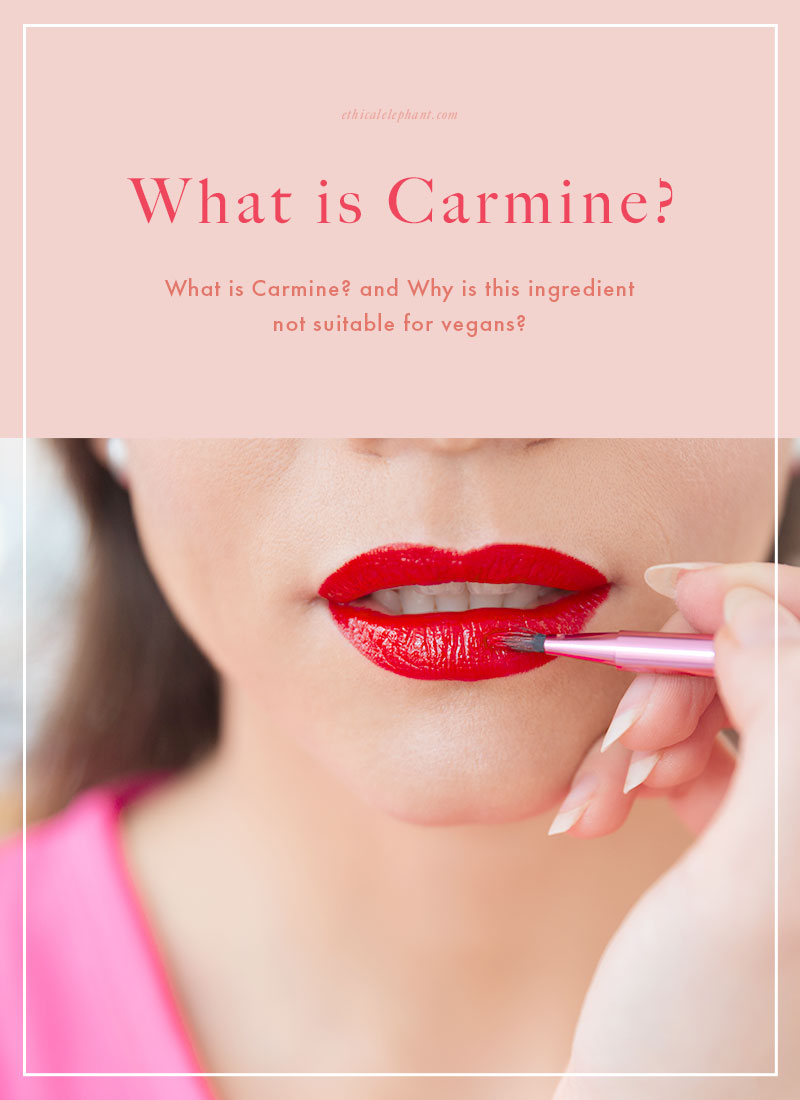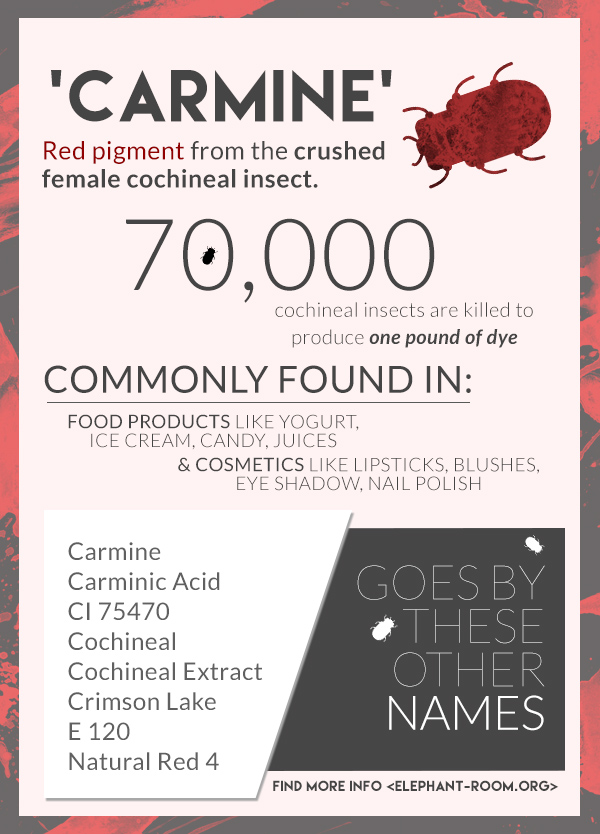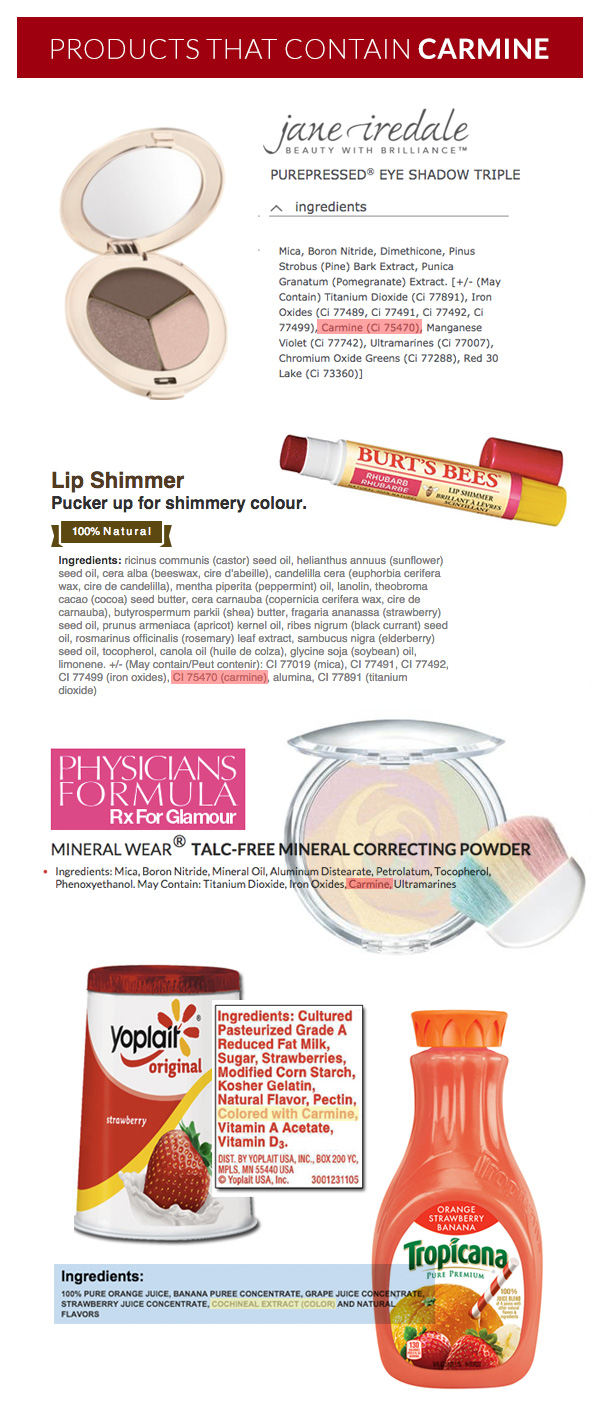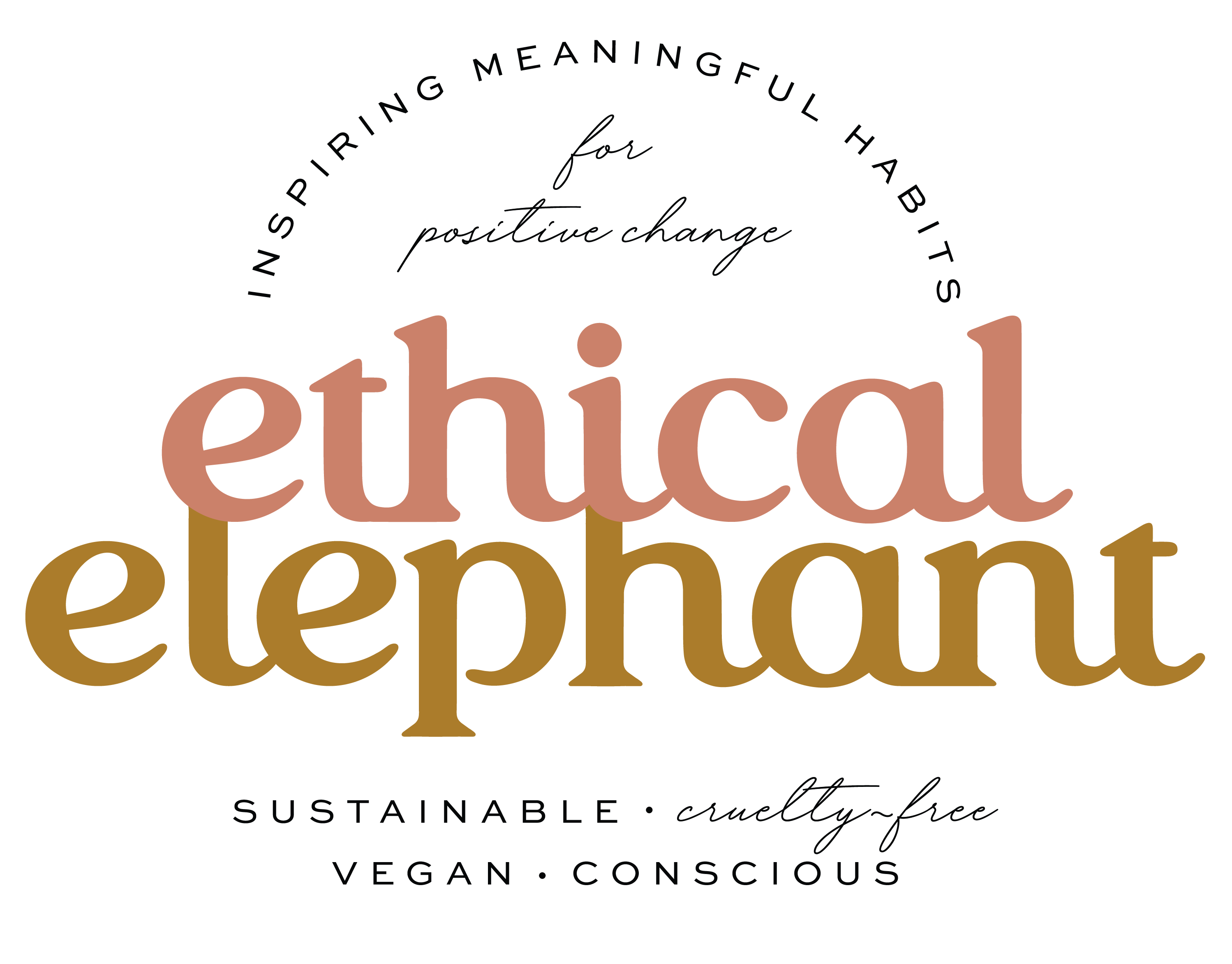This post may contain affiliate links that at no additional cost to you, I may earn a small commission.

Many vegans and caring consumers choose to avoid cosmetics and food products containing an ingredient called carmine because it is derived from crushed bodies of insects. Yes, you read that right.
The red dye or food coloring is obtained from cochineal insects and it takes about 70,000 insects to produce a pound of dye. If you want to learn more about the harvesting and production process, I definitely recommend checking this post from Gentle World. Although carmine is considered safe to be used in food products and EWG does not consider the ingredient to be potentially toxic or harmful, there have been some reported cases of severe allergic reactions in consuming or using products that contain carmine.
As a result, the FDA requires food and cosmetic manufacturers to “specifically declare the presence of the color additive by its respective common or usual name, ‘cochineal extract’ or ‘carmine,’ in the ingredient statement of the food label.” (Source: LiveScience)
Lucky for us vegans, that means it’s pretty easy to spot the ingredient on labels and to avoid products containing crushed insects. However carmine goes by a number of different names (like cochineal extract, CI 75470, E120, Red 4) and I always seem to forget them all so I’ve created a handy graphic below that can be saved and used as a reference on the go!

Carmine in Food and Makeup
Carmine is widely used in food products and cosmetics as a ‘natural’ dye and can be found in just about anything. To give you a visual of how common the ingredient is in our consumer products, I’ve compiled some examples below:

Is Carmine Vegan?
So, is carmine vegan? No. Anything that contains carmine or a derivative from cochineal insects is not suitable for vegans.
It’s also important to note that brands claiming their products are not tested on animals and are “cruelty-free” may use carmine in their products. Just because a brand claims to be “cruelty-free” does not automatically mean their products are free of carmine. The same goes for many self-proclaimed “natural” beauty brands. So we need to be on the lookout and make sure we’re reading those ingredient lists.
In addition, if you ever spot carmine in the ingredients under the “may contain +/-” list, this does not automatically mean the product contains carmine. Some cosmetic companies may use the same label or packaging on a number of their products and/or variation of colors in order to keep costs down. So some products or shades may contain carmine but other products that use the same label or packaging may not.
If you want to only shop and buy carmine-free cosmetics, then check out our list of 100% vegan beauty brands. None of these brands use carmine in their products.
Some products may not even contain carmine at all but since the products were made on the same equipment and assembly line with other products that do contain carmine, cosmetic manufacturers list carmine under the “may contain +/-” list for those who are sensitive or allergic to the ingredient.
When in doubt, always contact the company directly and ask if the product your interested in or the specific shade/color contains carmine.









19 thoughts on “Is Carmine Vegan? | What Vegans Need to Know About Carmine”
Thanks for the chart! I am allergic, having learned this only after ingesting pasta with Carmine as the color dye (not a good day). Anyways, the graphic you made is super helpful since like you I can never remember every name and I instead avoid products a may like if I am at all concerned.
I had problems with my favorite color of lipstick from Burts Bees and it wasn’t until the pasta incident that I found out why it bothered my lips. Now I’ve seen it in May other makeup brands and it’s really disappointing. But I do think there is hope as I see more brands trying to stick with cruelty free products.
THANK YOU!! OMG It is so hard to figure out what the other names of Carmine are.
If I use a product on my eyes with this ingredient present, I have an allergic reaction. My eyes burn, itch, and water. I have to take benedryl. ughhhhh all the colors I love contain this pigment unless I buy vegan eye products
It took me years to figure out I was allergic to this pigment. Each exposure causing a worse and longer lasting reaction. Some products just list “natural color” – it’s not a chemical!
While I am always an advocate cruelty-free products, to call the production of carmine “cruelty” is definitely a stretch. Cochineal are parasites- not only are they incapable of pain but the harvesting of them is hardly a loss. Furthermore, the discourse around cochineal and carmine in the vegan community always seems to be centered around the very Western attitude of “ew bugs! Gross”. Insects have been harvested for food for many years in many cultures, and are by far more sustainable than eating meat. They pack a lot of protein in small quantities, and take up little water and resources, as opposed to livestock and even some agricultural products (like almonds). I think the biggest issue in including carmine in products is the lack of transparency regarding labels and ingredient names for people who are allergic- but to act like carmine itself is the problem is a slippery slope.